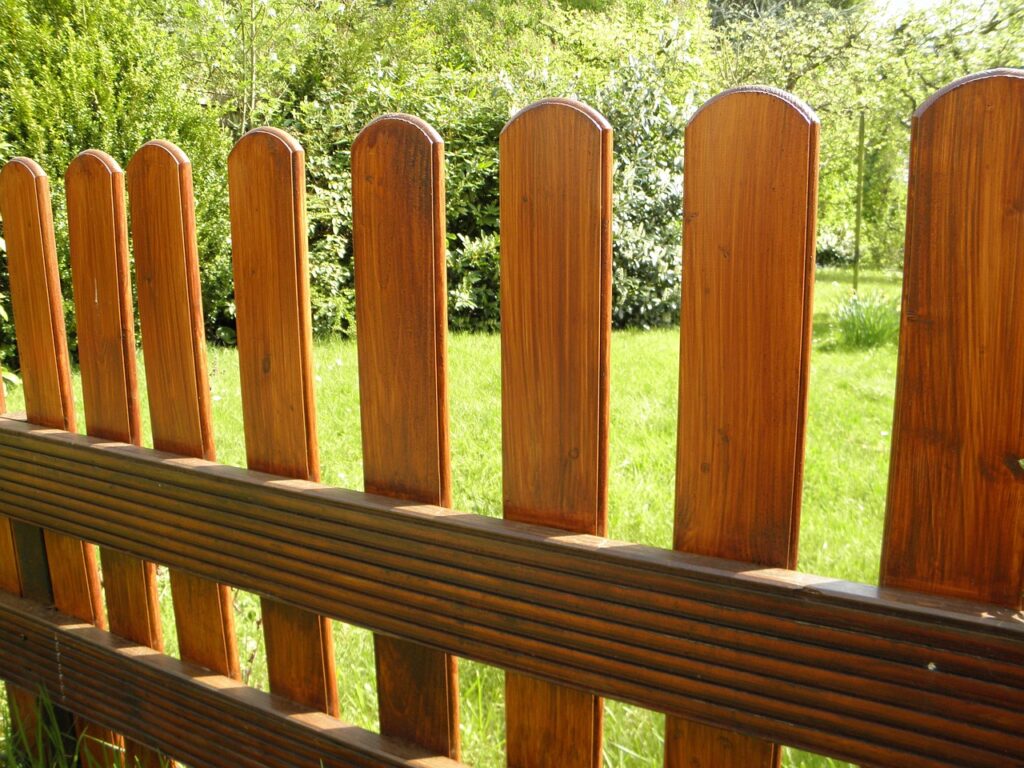Fences are a critical component of any property, providing security, privacy, and aesthetic appeal. Whether you have a wooden picket fence, a chain-link barrier, or an ornate wrought iron enclosure, maintaining your fences is essential. Regular inspections and timely repairs ensure your fence remains functional and attractive. Here’s a comprehensive guide on why it’s important to check your property fences and how to keep them in good repair.
Why Fence Maintenance Matters
Security and Safety
Prevent unauthorized access: A well-maintained fence acts as a deterrent to trespassers and potential intruders, enhancing the security of your property.
Contain pets and children: Secure fences keep pets and children safely within the boundaries of your property, preventing accidents and escapes.
Avoid accidents: Regular inspections can identify and rectify hazardous conditions such as loose nails, sharp edges, or leaning sections that could cause injuries.
Aesthetic Appeal
Enhance curb appeal: A well-kept fence boosts the overall appearance of your property, contributing to its curb appeal and value.
Create a positive impression: Neighbors and visitors will notice the effort you put into maintaining your property, reflecting well on you as a homeowner.
Property Value
Increase marketability: A sturdy and attractive fence can make your property more appealing to potential buyers, potentially increasing its market value.
Avoid costly replacements: Regular maintenance extends the lifespan of your fence, saving you money in the long run by preventing the need for costly replacements.
How to Inspect Your Fence
Regular inspections are key to catching and addressing issues early. Here’s how to conduct a thorough inspection of your fence:
Walk the Perimeter
Look for visible damage: Check for broken or missing boards, rust on metal fences, and any leaning or unstable sections.
Check for rot and decay: Inspect wooden fences for signs of rot, mold, or insect damage. Pay special attention to posts and areas where the fence meets the ground.
Test the Stability
Shake the fence: Gently shake the fence to check for any wobbling or movement. This can indicate loose posts or sections that need reinforcing.
Check gate operation: Open and close gates to ensure they swing smoothly and latch securely. Adjust hinges and latches as necessary.
Inspect Hardware
Check for rust: Examine screws, nails, and hinges for rust or corrosion. Replace any damaged hardware to prevent further deterioration.
Tighten connections: Ensure all connections are tight and secure. Loose hardware can compromise the integrity of the fence.
Maintaining Your Fence
Once you’ve identified any issues, take steps to address them and keep your fence in top condition:
Repair and Replace
Fix loose or broken parts: Replace broken boards, panels, or sections immediately to maintain the fence’s structure and appearance.
Reinforce posts: Stabilize leaning posts by digging around the base and adding concrete or gravel to improve stability.
Clean and Treat
Clean the surface: Remove dirt, debris, and mold from the fence. Use a pressure washer or scrub with a mixture of water and mild detergent.
Apply protective treatments: For wooden fences, apply a sealant or wood preservative to protect against rot and weather damage. Metal fences can benefit from a rust-inhibiting paint.
Regular Upkeep
Trim vegetation: Keep plants, vines, and bushes trimmed away from the fence. Overgrown vegetation can cause damage and create hiding spots for pests.
Seasonal checks: Conduct thorough inspections at least twice a year, ideally in spring and fall, to address any seasonal damage and prepare for extreme weather conditions.
When to Call a Professional
While many fence repairs can be handled by homeowners, some situations require professional assistance:
Severe Damage
If large sections of your fence are damaged or if the structure is compromised, a professional can provide a more durable and effective repair.
Complex Installations
For intricate or custom fences, it’s best to consult a professional to ensure repairs are done correctly and maintain the fence’s aesthetic integrity.
Time Constraints
If you don’t have the time or resources to conduct regular maintenance, hiring a professional service can ensure your fence remains in top condition without added stress.
Conclusion
Regularly checking and maintaining your property fence is crucial for ensuring security, safety, and aesthetic appeal. By conducting thorough inspections, addressing issues promptly, and performing routine upkeep, you can extend the lifespan of your fence and enhance the value of your property. Whether you handle repairs yourself or seek professional help, a well-maintained fence is an investment in the beauty and security of your home.

